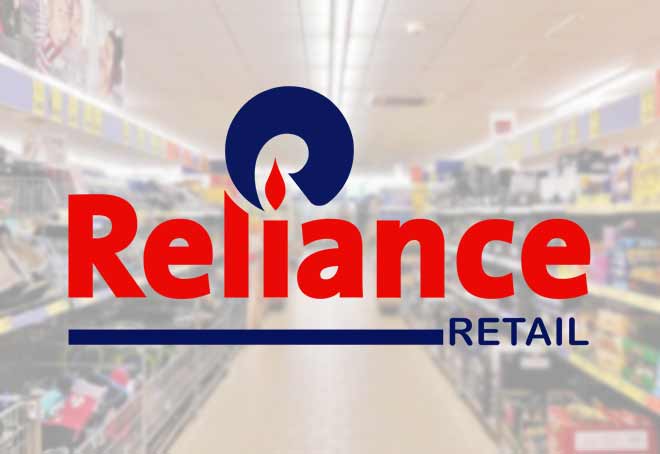
Reliance Retail valued at Rs 7.4-7.7 trillion by EY, BDO
According to two global consultants, Reliance Retail (RRL) has been valued at approximately Rs 7.42-7.72 trillion ($90-93 billion). This valuation comes ahead of a potential initial stake sale by its parent company, Reliance Industries (RIL). The valuation positions Reliance Retail as one of the most valuable companies in India, with only three other companies—Reliance Industries, Tata Consultancy Services, and HDFC Bank—having a higher valuation.
Reliance Retail, a subsidiary of Reliance Industries, is one of the largest retail chains in India, operating across various formats, including grocery stores, consumer electronics, fashion, and more. The company has rapidly expanded its presence and market share in recent years, leveraging its robust supply chain and strategic partnerships.

The potential stake sale in Reliance Retail by Reliance Industries indicates a possible move to unlock value and attract investment in this high-growth retail business. The valuation provided by the global consultants underscores the market’s confidence in the growth potential and value proposition of Reliance Retail.
On Friday, Reliance Industries Limited (RIL) announced its proposal to reduce the share capital of its unlisted subsidiary, Reliance Retail Limited (RRL). The reduction would involve the buyback of shares from shareholders, excluding the promoters and holding company, for Rs 1,362 per share. Two independent valuers have determined the valuation for the buyback price.
RIL stated in a stock exchange update that it had obtained board approvals for this proposal. The reduction in share capital through the buyback is a strategic move by RIL, which may have various objectives, such as optimizing the capital structure, consolidating ownership, or unlocking value in its subsidiary.
The buyback offer at a specified price provides an opportunity for shareholders of RRL to exit their investments at a predetermined value. The valuation conducted by the independent valuers is crucial in determining the buyback price and ensuring fairness for the shareholders involved. As part of the proposed reduction in the share capital of Reliance Retail Limited (RRL), Reliance Industries Limited (RIL) will buy back shares that are currently trading in the grey market and those offered to employees as stock options. The buyback will be followed by the extinguishment of these shares, effectively reducing the overall share capital of RRL.

Reliance Retail Ventures (RRVL), a subsidiary of RIL, holds a significant stake of 99.93% in RRL. RIL holds an 85.06% stake in RRVL, which translates to indirect control over RRL. Other shareholders hold the remaining 7.86 million shares of RRL.
The proposed buyback and extinguishment of shares indicate a strategic move by RIL to streamline its shareholding structure, consolidate ownership, or simplify the capital structure of its subsidiary. By repurchasing shares held in the grey market and stock options offered to employees, RIL aims to bring these shares back into its control.
The exact details and timeline of the buyback process, including the number of shares to be repurchased and the subsequent extinguishment, will likely be communicated by RIL in accordance with regulatory requirements. Investors and employees of RRL should refer to official announcements and disclosures made by RIL for accurate and updated information regarding the buyback and its impact on the shareholding structure of RRL. According to the valuation reports from E&Y and BDO Valuation Advisory, the per-share value of RRL was estimated at Rs 884.03 and Rs 849.08, respectively. Based on these valuations, the total valuation of RRL falls within the range of Rs 7.42 to Rs 7.72 trillion.
Valuation is a complex process that takes into account various factors and methodologies to determine the fair value of a company or its shares. In this case, E&Y and BDO Valuation Advisory were engaged by RIL to conduct independent valuations of RRL’s shares.
The slight variation in the valuation figures provided by E&Y and BDO Valuation Advisory could be attributed to differences in the methodologies used, assumptions made, and other factors considered during the valuation process. It’s important to note that the valuations are based on the information and circumstances available during the assessment.
These valuations provide a basis for RIL to propose the buyback of shares and the subsequent reduction in the share capital of RRL, as mentioned earlier. The buyback price of Rs 1,362 per share, as proposed by RIL, may have been determined in reference to these valuation reports and other relevant considerations.
For the most accurate and up-to-date information regarding the valuation of RRL and the subsequent actions taken by RIL, it is advisable to refer to the official announcements and disclosures made by the company. In 2020, Reliance Retail Ventures Limited (RRVL) raised a significant amount of capital, approximately ₹47,265 crores ($5.72 billion), by selling a 10.09% stake in the company. This transaction valued Reliance Retail Ventures at around $57 billion. The funds raised were aimed at strengthening the company’s position and expanding its operations.

It is worth noting that in 2019, RIL Chairman Mukesh Ambani had expressed the group’s intention to list Reliance Retail Ventures, along with its telecom arm Reliance Jio Infocomm, within a five-year timeframe. This indicated RIL’s long-term plan to take the company public and potentially unlock additional value for its shareholders.
Before the announcement mentioned, the share prices of Reliance Industries Limited (RIL) closed flat at ₹2,629 per share on the National Stock Exchange (NSE) on the day of the announcement. Share prices can fluctuate based on various factors, including market conditions, investor sentiment, and specific company news or developments.
It’s important to note that stock prices and market dynamics can change rapidly, and investors and stakeholders are advised to refer to the latest stock market information and official communications from the company for the most accurate and up-to-date data.






